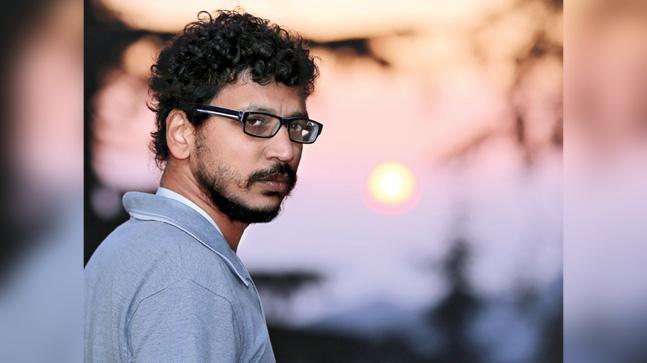BY SUKANT DEEPAK
New Delhi– He smiles that being a nomad for the past so many years, he has no memory of being stationary for such a long time. Stressing that this is the first time he is experience such a blank canvas of space and time, Pune-based filmmaker Umesh Kulkarni, who won the National Award for Best Film for his first feature film, ‘Deool’ in the year 2011, which also ran for more than six months in theatres in Maharashtra, said that he has started work on a story on which he had been wanting make a movie for the past 10 years.
“The initial days of lockdown were about reading voraciously, then came Spanish lessons. Now, I am working on a script based on ‘Swami’, a story by the Sahitya Akademi Award winning writer GA Kulkarni. So, all this time is being utilized well,” he smiled.
Umesh, a Film & Television Institute of India (FTII), Pune pass out, credited to be one of the filmmakers who has given a new energy to the fresh new wave of Marathi cinema, and whose films have been screened at prestigious festivals including the Berlin Film Festival (‘Valu’ and ‘Vihir’), Rotterdam International Film Festival (‘Vihir’) is not really worried that many Indian and international film festival organisers are doubtful about the future of small festivals this year and the next.
“First thing is I don’t make films very regularly. I make some, and I travel a lot. Also, my movies may do the festival rounds, but that’s not my final destination, so I am not affected in that sense. But yes, as a platform I look forward to them as they promise me an opportunity to meet the audience. Of course, for young independent filmmakers who are just starting out, festivals are extremely important as they ascertain a curiosity about the film among audiences and producers.”
The filmmaker, who has always propagated setting up film schools in each state insisted that the same is paramount in a vast country like India as that will not only facilitate diverse tales coming to light but also help the industry.
“Let us not forget that a major film institute like FTII has very limited seats. When I was visiting the State Institute of Film and Television in Rohtak, Haryana, it was so satisfying to see young people making films in their own language and dialect. Not influenced by European filmmakers, but telling their own tales through their own understanding of cinema.”
Talking about the many private ones that have opened shop, he added, “Not only are they very expensive, many don’t even have adequate facilities, equipment and a faculty they can be proud of.”
Stressing that in the recession era post lockdown, the government must put in place certain interventions which can help trained filmmakers with their first films, Umesh said, “Just Like NFDC used to be very important for those passing out from FTII. I am not saying that these youngsters should be supported throughout, but give them something to build on, especially if they are not making a mainstream Hindi film.
Admitting that funding has never been a major issue for him considering the fact that his first film was such a big hit, post which AB Corp and other producers came aboard to help him in his subsequent movies, Umesh however smiled, “But if I am making something very experimental, that would not be the case. It’s not that I can write anything and funding is guaranteed.”
Talk to him about the resurgence of Marathi cinema post the year 2000 and he asserts that even though in the 90’s, several filmmakers were making excellent films, the years post 2000 witnessed a very young crop of trained filmmakers coming from film schools and mass communication institutes.
“Young people wanted to make films based on their own experience and they wanted to make them in Marathi. There was a rigor to make those movies possible. Also, film festivals played a vital role — audiences started understanding that there was a world of cinema beyond Bollywood, and of course government subsidies. However, today we are witnessing a stage when experimentation has reduced. People have become more cautious. Corporates who had stepped in earlier are now supporting only those films which they know will do well at the box office. No wonder we are seeing so many movies based on historical characters. Sadly, the true experimental yet accessible cinema has been slowly overshadowed in these two decades.” (IANS)















